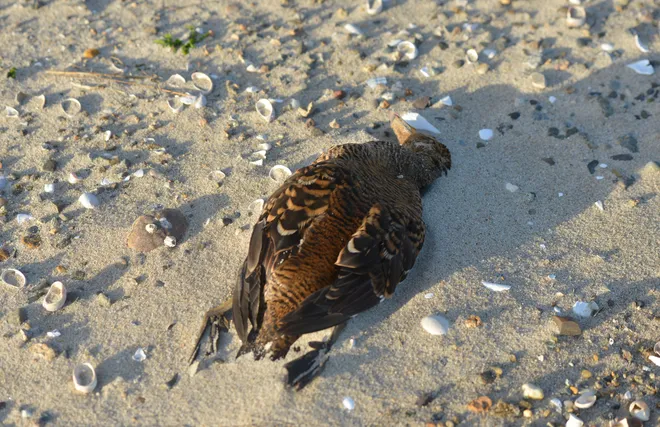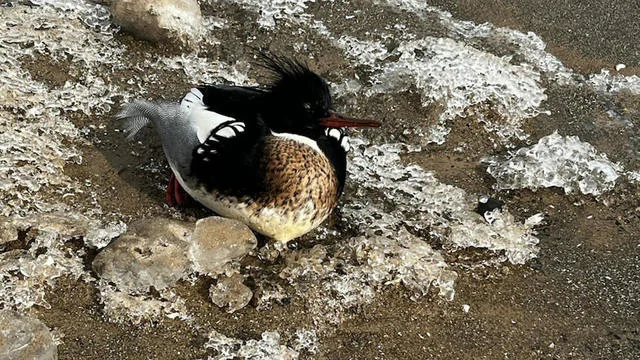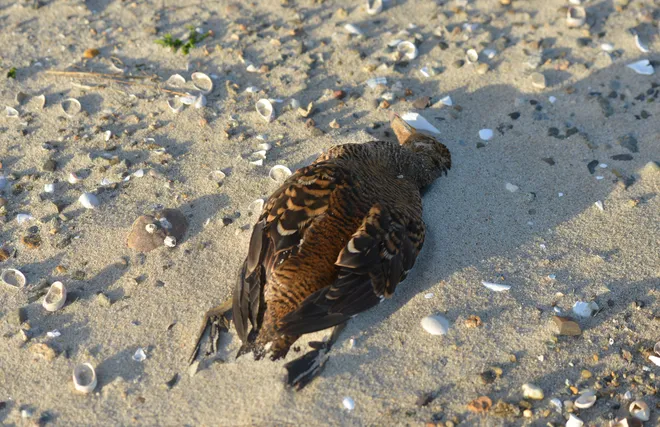Chicago Duck Die-Off: Heartbreaking Mystery as Hundreds of Ducks Wash Ashore – What’s Causing It?

In a shocking and heartbreaking turn of events, hundreds of dead ducks have washed ashore near Chicago, leaving residents and wildlife experts baffled. The Chicago Duck Die-Off has sparked widespread concern, with many questioning what could have caused such a tragic incident. As investigations continue, experts warn that this may not be an isolated event. Here’s everything we know so far about this mysterious phenomenon.
What Happened?
Over the past week, locals near Lake Michigan reported seeing dozens of dead ducks scattered along the shoreline. The numbers quickly grew into the hundreds, painting a grim picture of the Chicago Duck Die-Off. The ducks, primarily migratory species, were found in various stages of decomposition, suggesting the deaths occurred over several days.
Wildlife officials were immediately called to the scene to collect samples and determine the cause. While the exact reason remains unclear, early reports point to a combination of environmental factors and potential disease outbreaks.
The Scale of the Tragedy
The Chicago Duck Die-Off is one of the largest wildlife mortality events in the region in recent years. Hundreds of ducks, including species like mallards, scaups, and teals, have been found lifeless along the shores of Lake Michigan. The sheer scale of the event has left even seasoned wildlife experts stunned.
Local resident Sarah Thompson, who first noticed the dead ducks, described the scene as “devastating.”
“I’ve lived here for over 20 years, and I’ve never seen anything like this. It’s heartbreaking to see so many beautiful birds just lying there,” she said.
Table of Contents
Possible Causes of the Chicago Duck Die-Off
- Water Contamination:
One of the leading theories is that the ducks may have been exposed to toxic substances in the water. Industrial runoff, algae blooms, or chemical spills could have contaminated their habitat, leading to mass deaths. Lake Michigan, a vital water body for both humans and wildlife, has faced pollution challenges in the past, making this a plausible cause. - Avian Diseases:
Experts are also investigating the possibility of diseases such as avian botulism or avian flu. These illnesses can spread rapidly among bird populations, especially in crowded migratory areas. Avian botulism, in particular, thrives in warm, shallow waters and can be fatal to waterfowl. - Harsh Weather Conditions:
The recent erratic weather patterns in the region may have played a role. Sudden temperature drops or storms could have disoriented the ducks, leading to exhaustion or hypothermia. Migratory birds are especially vulnerable to extreme weather events, which can disrupt their feeding and resting patterns. - Human Interference:
Pollution, fishing nets, and other human activities could have contributed to the deaths. While this is less likely to be the primary cause, it remains a factor under consideration. For example, discarded fishing gear can entangle birds, leading to injury or death.

Expert Insights
Dr. Emily Carter, a wildlife biologist, shared her thoughts on the Chicago Duck Die-Off:
“This is a tragic event, but unfortunately, it’s not entirely unprecedented. Ducks and other migratory birds face numerous threats, especially in urban areas. What’s concerning is the scale of this die-off. If we don’t address the underlying causes, we could see more incidents like this in the future.”
Dr. Carter emphasized the importance of protecting natural habitats and reducing pollution to prevent similar tragedies. She also highlighted the need for better monitoring of migratory bird populations to detect early signs of trouble.
What’s Being Done?
Local authorities and wildlife organizations have launched a multi-pronged approach to address the Chicago Duck Die-Off:
- Sample Collection: Teams are collecting water and tissue samples to identify toxins or pathogens. These samples will be analyzed in laboratories to determine the exact cause of death.
- Public Awareness: Residents are being urged to report any unusual wildlife behavior or additional dead birds. This will help authorities track the extent of the problem.
- Habitat Restoration: Efforts are underway to clean up the shoreline and reduce pollution in the area. This includes removing litter, controlling industrial runoff, and restoring natural vegetation.
Why This Matters
The Chicago Duck Die-Off is more than just a local tragedy—it’s a stark reminder of the fragile balance between humans and nature. Ducks play a crucial role in ecosystems, from controlling insect populations to dispersing seeds. Their sudden deaths could have ripple effects on the environment.
Moreover, this incident highlights the need for greater environmental protection. As urban areas expand, wildlife habitats are increasingly under threat. If we don’t take action now, events like this could become more frequent.
What Can You Do?
While the Chicago Duck Die-Off is a complex issue, there are steps you can take to help:
- Reduce Pollution: Dispose of waste properly and avoid using harmful chemicals.
- Support Conservation Efforts: Donate to or volunteer with local wildlife organizations.
- Spread Awareness: Share this story to educate others about the importance of protecting our environment.
- Advocate for Change: Push for stronger environmental regulations and policies to protect wildlife habitats.

Conclusion
The Chicago Duck Die-Off is a heartbreaking reminder of the challenges wildlife face in an increasingly human-dominated world. As experts work to uncover the cause, it’s up to all of us to take action and protect the natural world. By working together, we can prevent tragedies like this from happening again.




